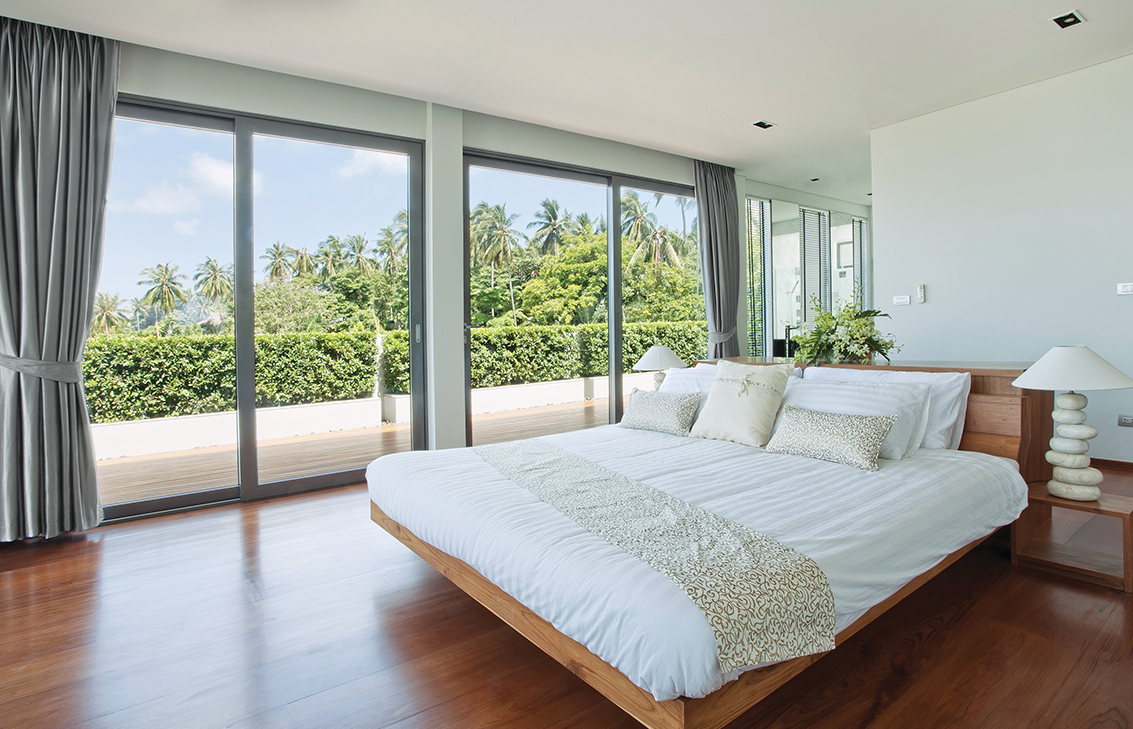FAQs About Doors And Windows
- What causes condensation on my windows?
Windows can often get moisture or “sweating” by having excess humidity in the air. When the humidity makes contact with the cooler surface of the glass, the “sweating” occurs. This indicates excessive air humidity inside the room which should be reduced. Typical causes of excess humidity are: inadequate ventilation in the room, faulty central air humidifier, heavy drapes preventing circulation near windows. Additional exhaust fans are necessary to prevent “sweating” in washrooms and laundry rooms.
- Why replace old windows?Energy efficiency: 25-30 % of your heating/cooling bill comes from losses of energy through windows and doors. A 3’x5′ window with a 1/16″ gap around the sashes is equivalent to having a hole in the wall the size of a brick. Over the past 10 years windows and doors became much more energy efficient. New windows and doors will significantly reduce your energy bill. Air quality: Tight windows keep out dust, bugs, pollen and sound – so the indoor environment is healthier and more comfortable. Condensation: Energy-efficient windows stay warmer on the interior surface, so air humidity in winter can be raised to comfortable levels without getting windows to “sweat”, which if persistent may damage walls.
- What is Conduction?Conduction refers to the energy transfer from one material to another by direct contact.
- What is Krypton Gas?Krypton Gas is an inert, odorless, colorless, tasteless, non-toxic gas that is denser than air. It is used to replace air between the glass panes in an insulating glass unit to reduce temperature transfer and deter convection (heat transfer by currents that flow from a warm surface to a colder surface).
- What is Low-E Glass with Argon Gas? How does it work?Added inside an insulating glass unit with Low-E Glass, Argon gas is an invisible, insulating blanket that replaces most of the air during the manufacturing process. With Low-E reflecting heat away, Argon gas buffers thermal transfer to enhance the performance of the entire glass unit.
- What is Low-E Glass?Low-E (Emissivity) glass is treated with thin, virtually invisible, transparent coatings of various layers including metal oxide and silver. During the winter, Low-E glass allows the sun’s natural light and short-wave heat energy to freely pass through while reflecting long-wave heat energy back inside, keeping your home warmer. In the summer, Low-E glass reflects long-wave heat energy to the outside keeping your home cooler and, reduces the penetration of the sun’s ultraviolet (UV) rays, minimizing the fading of carpet and draperies.
- What is insulating glass?Insulating glass consists of two pieces of glass sealed to a spacer. This creates an insulated air space between the two pieces of glass, resulting in better thermal performance. Insulated glass also reduces condensation while keeping the heat in during the winter, and heat out during the summer.
- Can I use a storm door in front of my entry door?Storm doors can be used, but SHOULD NOT be used in conjunction with doors painted or stained with dark colors or in areas of high heat or intense sun exposure. We strongly recommend using a vented storm door which allows the trapped heat to escape, prolonging the life and performance of your door. Improper storm door applications can void the warranty on your entry door.
- What is CSA-A440? And why is it so important?The Canadian Standards Association established CSA-A440 for windows. It describes how to measure and rate windows for airtightness, watertightness and wind resistance, even susceptibility to forced entry. All Aztech windows have been tested – and the excellent results speak for themselves. Be wary of windows that have not been tested to CSA-A440 standards.
- What is an R-Value?R-value measures the resistance a material has to heat flow. The higher the R-value, the greater the resistance, and the better the insulating quality.
- When should I replace my windows?
- When your windows have air leaks and drafts.
- When your heating and cooling bills continue to rise.
- When your windows are difficult to open and close.
- When your windows do not provide adequate security for your home and family.
- When your windows allow dust and dirt into your home.
- When your windows don’t block outside noise.
- When your windows appear foggy.
- When your windows are difficult to clean.
- When your windows cost you time and money in maintenance.
- What is the advantage choosing a custom replacement window over windows found in home centers?The windows found in home centers and/or major lumberyards are typically stock sizes with little or no options. Replacement windows are custom made for each opening in your home, with the ability of choosing many energy saving and aesthetically appealing options.
- What are Grids or Muntins?Grids are decorative, horizontal or vertical bars installed between the glass panes to create the appearance of the sash being divided into smaller lites of glass.
- What is Tempered Safety Glass?Tempered Safety Glass is treated with high heat for strength. If tempered safety glass is broken, it will shatter into very small pieces instead of shards.
Warranty
Limited Lifetime Warranty, Non-prorated, Transferrable Key Warranty Features
When it comes to keeping your home secure and comfortable, the importance of high-quality doors and windows cannot be overstated. That's why it's crucial to invest in products that come with a Limited Lifetime Warranty.

